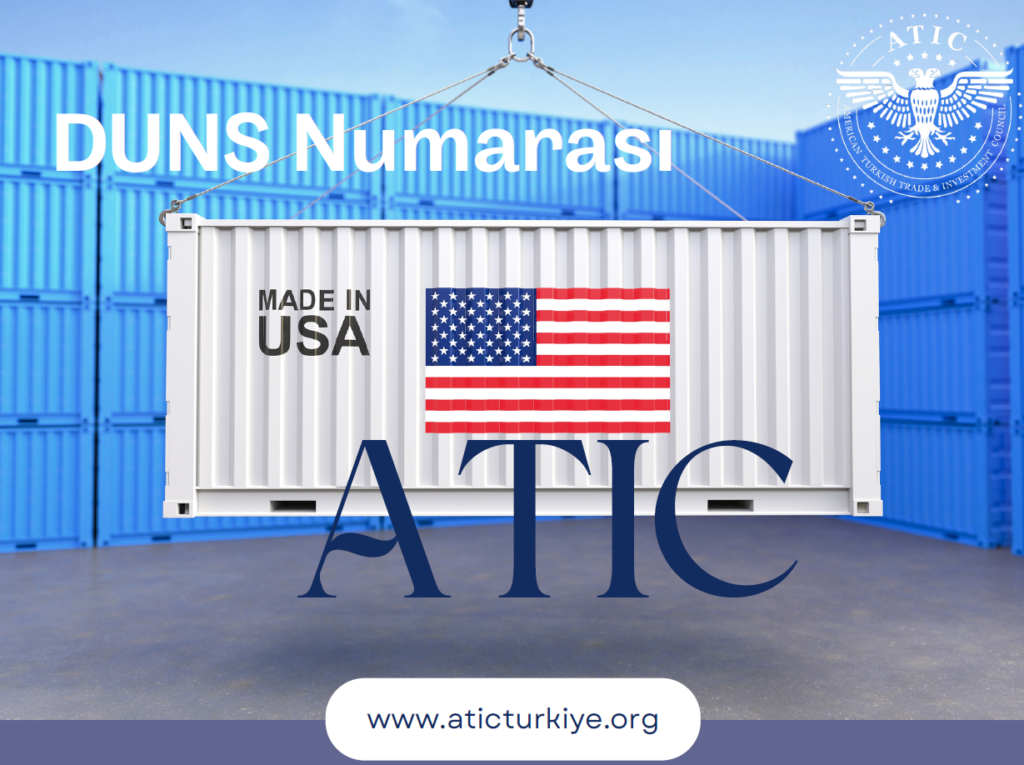EXPORT TERMS
In order to ensure an effective and efficient process management in international trade, it is of great importance to be familiar with both national and international regulations. Having accurate information on customs procedures, export documents, payment methods, and logistics conditions ensures that transactions are completed seamlessly and efficiently. Additionally, understanding basic export terms is critical for gaining a competitive edge in the international market.
Export Terms Dictionary
The use of a common terminology in international trade facilitates the tracking of legal procedures and ensures that commercial transactions are conducted more effectively between parties. The basic export terms listed below are important for managing commercial transactions correctly and ensuring effective operations:
Agent: A person or entity acting on behalf of a business under a contract, without legal affiliation.
Ad Valorem Tariff: Customs duty calculated based on the shipment’s value rather than its weight or volume.
Accreditation: Formal recognition of meeting specific standards.
Letter of Credit (L/C): Bank-issued guarantee ensuring exporter receives payment when conditions are met.
Applicant (L/C Issuer): Usually the importer who requests the letter of credit.
Beneficiary (L/C): Exporter entitled to receive payment under the L/C.
Transshipment: Transferring cargo between vessels during transit.
ECSC (European Coal and Steel Community): Precursor to the EU established in 1951.
Issuing Bank: Bank that opens the L/C on behalf of the importer and guarantees payment.
U.S. Export Licenses: Required permits for shipping specific goods to the U.S.
Anti-Dumping Duty: Additional tariff imposed on goods sold below domestic market prices.
Harmonized System (HS) Code: Six-digit international tariff classification system by WCO.
Master Manifest: Cargo register based on bills of lading, approved by port authorities.
ATA Carnet: Customs document for duty-free temporary exports.
Identical Goods: Items with identical specs and origin.
Non-Cash Capital: Assets contributed to a company in-kind.
Detailed Invoice: Invoice listing quantities of different items within multiple packages.
Binding Origin Information: Customs decision confirming a product’s country of origin.
Binding Tariff Information: Customs decision classifying goods in the local tariff schedule.
Compensation Trade (Countertrade): Trade settled by exchanging goods/services.
Stamp: Label indicating tax compliance on sold products.
Simplified Procedures: Customs regimes that reduce formalities.
Basel Convention: Treaty regulating transboundary movements of hazardous waste.
Free Goods Export: Export of goods without charge (e.g. promotional gifts).
Similar Goods: Commercially interchangeable products from the same country.
Declaration: Submission of information to customs (written or oral).
Declarant: Party submitting customs declaration.
Irrevocable Declaration: Customs declaration that cannot be modified after registration.
Customs Declaration Form: Official paperwork for export/import customs clearance.
Request for Information: Customs inquiry for binding tariff/origin rulings.
Promissory Note: Debt instrument with a fixed repayment date.
Gross Weight: Weight including packaging.
Bunker: Fuel facilities for ships at sea or in port.
CE Mark: Indicates compliance with EU directives.
CFR (Cost & Freight): Seller pays carriage to port; risk transfers at loading.
CIF (Cost, Insurance & Freight): CFR plus insurance cover by seller.
CIP (Carriage & Insurance Paid To): Seller arranges and pays for carriage+insurance.
CPT (Carriage Paid To): Seller pays transport to agreed destination; risk transfers earlier.
Packing List: Document listing items, weights, and package details.
Cumulation of Origin: Rules recognizing combined production in partner countries.
Inward Processing: Import of inputs for processing and re-export under favorable terms.
Inward Processing Permit: License for tax-favored imports under inward processing.
Drawback Regime: Duty refund on inputs used in export production.
Stamp Duty: Tax on legal agreements and official documents.
Dumping: Exporting below domestic prices.
DAP (Delivered at Place): Seller delivers to named place; buyer handles customs.
Net Weight (Nett): Weight excluding packaging.
DAT (Delivered at Terminal): Delivery at terminal; seller unloads.
Demurrage: Charges for cargo delays at port.
DDP (Delivered Duty Paid): Seller bears all costs including duties/taxes.
Export Financing Company: High-volume exporters benefiting from state incentives.
Trade Standardization: Application of uniform technical regulations.
Direct Customs Representation: Agent acts in the name of importer/exporter.
Indirect Representation: Agent acts in their own name on behalf of the principal.
Bulk Cargo: Unpackaged goods loaded mechanically (e.g., coal).
Packaged Cargo: Goods in standard packaging.
Foreign Exchange: Currency used in cross-border payments.
Exchange Rate: Value of one currency relative to another.
E-Mark (UNECE): Certification for automotive compliance in Europe.
EDI (Electronic Data Interchange): Digital exchange of trade documents.
Incomplete Documentation Declaration: Customsallowing incomplete declarations under simplified terms.
Expertise Report: Official inspection report by customs authorities.
Handling: Storage or moving of goods under customs supervision.
Equivalent Goods: Domestic goods deemed equivalent to imports.
Customs Warehousing/Use Regime: Temporary admission or use under customs control.
Nationalization of Goods: Goods released for free circulation upon customs clearance.
EXW (Ex Works): Buyer takes full responsibility from seller’s premises.
Factoring: Selling receivables to a financial institution.
FAS (Free Alongside Ship): Delivery alongside vessel at specified port.
FCA (Free Carrier): Delivery to carrier at named place after export customs.
FCL (Full Container Load): Container fully occupied by one shipper.
FEU: Forty-foot equivalent unit (container measure).
Leasing: Financial lease of equipment or property.
Quotation: Offer including price, payment, and delivery terms.
Physical Inspection: Customs inspection to verify declared cargo.
FOB (Free On Board): Seller loads onto ship; buyer takes risk thereafter.
Forfaiting: Exporter sells receivables for lump payments.
Freight Forwarder: Logistic intermediary organizing transport and customs.
Trade Show Support: Government subsidies for exporters at foreign fairs.
Gauge Limits: Legal shipping dimensions for road transport.
GATT: 1947 trade agreement, succeeded by WTO in 1995.
Late Payment Interest: Penalty for overdue payments.
Temporary Admission: Import and re-export under customs procedures.
Circular: Official memo clarifying law/regulation.
GSP: Reduced duties for developing countries under preference schemes.
Returned Merchandise: Exported goods returned by importer country.
Refund Scheme: Duty refund for imported inputs under inward processing.
Entry Customs Office: First customs checkpoint for imports.
Global Bond: Guarantee for duty and fees in road transport.
Groupage: Consolidation of small shipments under one transport.
Customs Declaration: See above.
Customs Zone: All areas under customs law (land, sea, air).
Customs Route Code: Labeling of customs procedures at ports.
Customs Broker: Licensed agent processing customs formalities.
Customs Status: Indicates import/export clearance status.
Tariff Subposition: Six-digit HS subheading.
Tariff Schedule: National classification index updated yearly.
Customs Schedule Sections, Notes: Further categorize HS chapters.
Customs Statistical Position (CST): Turkish 12-digit classification extending HS code.
Customs Duty: Taxes applied in import/export operations.
Customs Data Warehouse System: Electronic customs data integration.
Customs Value: Total cost basis for duty including CIF/FOB.
Customs Market Value: Estimated domestic market price post-clearance.
Customs Controlled Area: Ports/depots under customs control.
Unfair Competition: Misleading or deceptive trade practices.
Outward Processing: Temporary export for repair or processing and reimport.
HS Code: See Harmonized System.
IATA: International Air Transport Association.
Administrative Decision: Binding ruling by customs authority.
Export Credit: Financing support for exporters.
Export License: Permit required for certain exports.
Export-Like Sales: Domestic sales treated as exports for incentives.
Export Insurance: Coverage protecting export receivables.
Specialized Customs House: Customs office focused on specific goods.
Pre‑shipment: Preparation phase including packaging and documentation.
Waybill (Consignment Note): Document detailing transport.
Customs Value of Import: Value used to determine ad valorem duties.
Import: Bringing goods into a country.
Import Surveillance Measures: Regulatory oversight on imported goods.
Import Safeguard Measures: Tariffs/quotas to protect domestic producers.
Objection: Legal appeal against a customs decision.
Specification Document: Declaration supporting correct classification.
Cabotage: Domestic coastal shipping rights.
Package: Packaging type used for goods.
VAT: Value‑added tax on goods/services.
Recorded Export: Exports registered through exporter’s association.
Resource Utilization Support Fund: State fund from import financing charges.
VAT Refund: Reimbursement of VAT on exports.
Test Sample: Goods sent for inspection/testing.
Combined Nomenclature Code: Eight‑digit code extending HS system.
Consignment Export: Goods sent without transfer of title until sale.
Bill of Lading (B/L): Transport contract confirming receipt of goods.
Inspection Certificate: Quality compliance certificate.
Quota: Quantity/value limit imposed on trade.
Exchange Difference: Currency fluctuation impact on contracts.
Reservation: Discrepancy noted in L/C documents.
Non‑standard Goods: Damaged or nonconforming goods.
Damage Report: Evidence for insurance claims.
Ro‑Ro: Roll‑on/roll‑off ship transport of vehicles.
Royalty: Fee paid for using intellectual property.
Trailer: Non‑motorized cargo trailer.
Fraudulent Origin Goods: Items falsely labelled for origin.
Sectoral Trade Company: Export consortium by industry.
Free Zone: Customs-free area with incentives.
Free Zone Operator/User: Entity managing or operating in a free zone.
Free Circulation: Goods cleared for domestic market entry.
FTA: Agreement removing tariffs/trade barriers.
Drill‑Sampling Inspection: Quality inspection via sample testing.
Oral Declaration: Spoken customs declaration.
Specific Tariff: Duty based on physical characteristics.
Standardization: Developing common technical regulations.
Direct Release (Supalan): Customs direct release to consignee.
Conditional Exemption Scheme: Bond‑back tax relief on inputs.
Suspicious Transaction: Trade raising legal/AML concerns.
Accrual: Formal debt recognition.
Barter: Exchange of goods/services without currency.
Full Exemption: Import without duties.
Complete Examination: Full inspection of container contents.
Non-Tariff Barrier: Regulations other than tariffs restricting imports.
Tariff Quota: Tax‑free or reduced‑tax import volume.
Official Directive: Administrative guideline or memo.
Liquidation: Disposal of seized/uncompleted goods.
Notice: Official legal communication.
Flat & Specific Tariff: Uniform duty for non-commercial items.
Countervailing Duty: Tax offsetting subsidies to protect domestic producers.
Copyright: Legal right over creative works.
Security Deposit: Financial guarantee for customs duties.
Security Letter of Guarantee: Bank guarantee for customs/transport duties.
Preferential Tariff: Reduced tariff under trade agreements.
Non‑preferential Origin Rules: Origin determination based on national law.
Registration: Official recording of customs declarations.
Registration Confirmation: Customs acceptance allowing process to continue.
TEU: Twenty‑foot Equivalent Unit.
TIR: International Road Transport transit system.
Trade Policy Measures: Regulatory measures protecting local industries.
Transit: Movement under customs control without clearance.
Third Country: Non‑party to a trade agreement.
VEDOP: Tax automation system in Turkey.
Customs Duty Liability Start Date: Date when duty obligation begins.
Tariff Schedule for Taxation: Basis for customs duty calculations.
Sub‑contractor: Participant in processing under an inward processing permit.
Shelf‑worn Goods: Deteriorated items requiring specific permission.
Endorsement (Amendment): Insurance addendum document.




